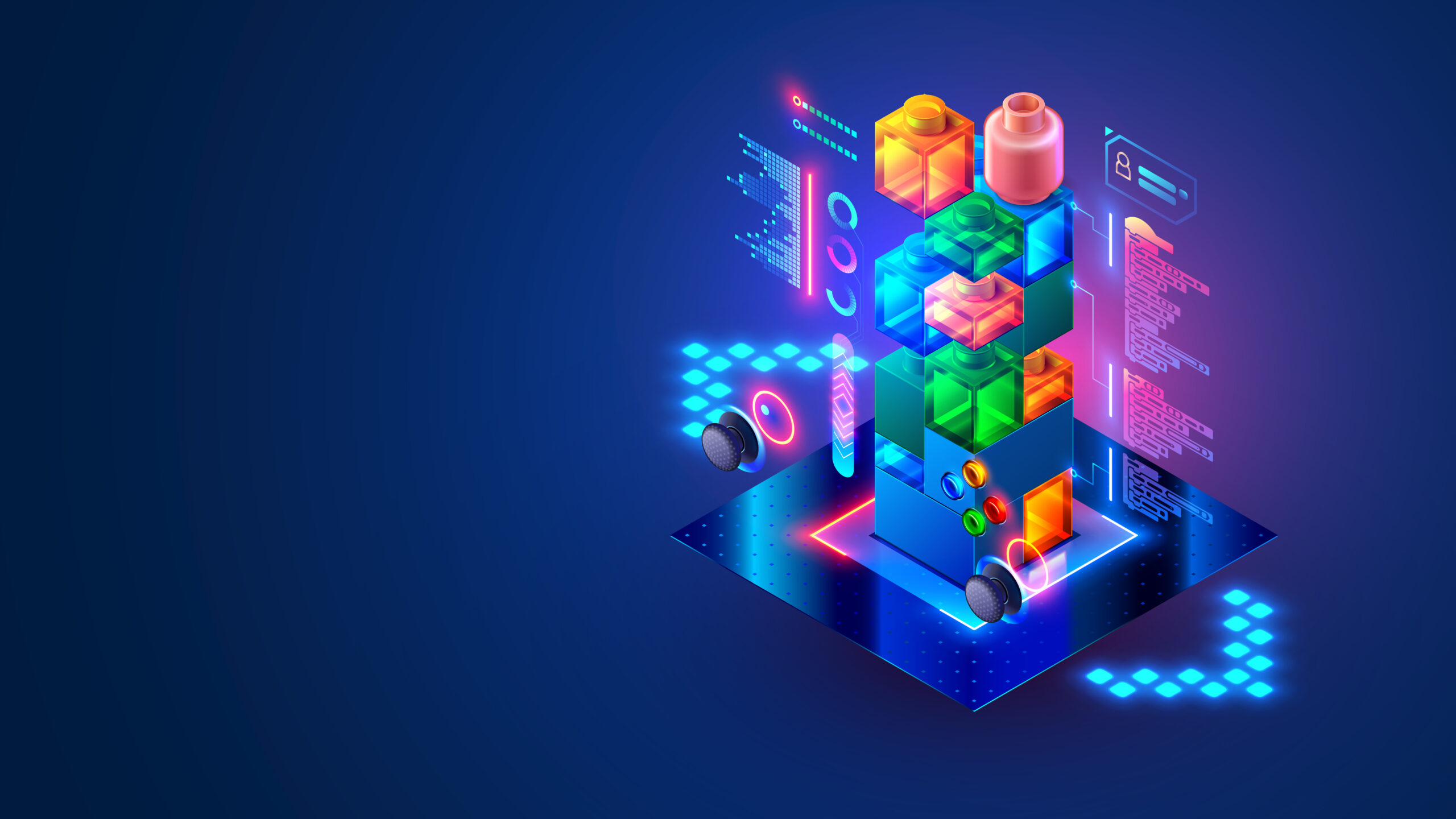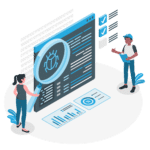Developing Better and More Competitive Software Products: A Guide by KMS Technology
In an increasingly digital world, the power of software cannot be overstated. At KMS Technology, we’ve been on the frontline of the software development industry, consistently seeking and creating better solutions for our clients. Through this journey, we’ve come to appreciate the challenges and triumphs of developing better and more competitive software products.
In this blog post, we share some of the key insights that we’ve gleaned over the years and provide tips on how to develop more competitive software products.
Understanding the Current Software Market

Software development is an intensely competitive field. The stakes are high, the barriers to entry are low, and innovation is the name of the game. Amid such conditions, understanding emerging technologies and trends is critical to staying ahead.
The industry is seeing rapid advancements in artificial intelligence (AI), machine learning (ML), big data analytics, and cloud computing. These technologies are no longer just buzzwords. They are actively shaping how we develop and use software products.
Understanding and leveraging these trends can significantly enhance the quality and competitiveness of the software you create.
The Building Blocks of Better Software

Creating superior software isn’t an accident; it results from careful planning and strategic implementation.
Let’s dive deeper into some of the core components we at KMS Technology deem essential for building better software.
Identifying & Understanding Customer Needs
The first and most important component of superior software development is clearly understanding customer and target audience needs.
This process begins with deep research and empathetic conversations to comprehend what the customer really wants. We believe that a profound understanding of the user’s environment, pain points, and aspirations allows us to tailor software that fits seamlessly into their workflow.
At KMS, we dedicate substantial time and resources to this stage, ensuring we thoroughly grasp the user’s needs before embarking on the development journey. It’s our mission to build relationships through industry networking, giving back in the community, referrals, and other forms of relationship building.
Architectural Framework
Solid software design and architectural framework are pivotal in creating a standout software product. The architecture of software not only dictates its overall structure but impacts its future scalability, maintainability, and efficiency.
By building a concrete architectural foundation, you ensure that your software can adapt and grow alongside the evolving needs of clients and users.
At KMS, we blend industry-standard practices with our insights to create an architectural blueprint that serves as a reliable roadmap throughout the development process.
Quality Assurance (QA)
Quality Assurance (QA) forms the third cornerstone of exceptional software development. A software product can have the most innovative features and a sleek design, but if it’s riddled with bugs or performance issues, the user experience will be compromised.
We emphasize rigorous testing practices, employing both manual and automated methods to ensure that our software meets the highest quality standards. Our QA processes are comprehensive, aiming to detect and rectify any discrepancies before the product reaches the end user.
Continuous Improvement
Lastly, we must recognize the importance of feedback and iterative refinement in software development. We view software development not as a linear process but as a cycle of continuous improvement.
Regular feedback loops with our clients and end-users ensure we can adjust the product according to their changing needs and expectations.
These core components serve as our guiding principles in our quest to develop better software, providing the backbone for all our development endeavors. By adhering to these principles, we ensure our software products are always high-quality, user-centric, and robust.
Techniques & Tips on How to Develop Better Software Products

Competitive software products aren’t just about meeting basic requirements – they excel in delivering unique value, superior user experience, and reliable performance.
We use a suite of modern techniques to create top-tier software products both in-house and for our customers.
Agile Methodologies
Agile methodologies allow us to create software that can adapt quickly to the evolving needs of the market. The iterative development approach, characterized by regular sprints and continuous feedback, allows for:
- Quick identification and ratification of bugs or issues
- Frequent releases, keeping the product current and competitive
- High flexibility, facilitating adaption to changing requirements
By incorporating Agile methodologies, you can ensure your software evolves in tandem with client needs and market trends.
DevOps Practices
DevOps forms the backbone of the development and deployment process.
By breaking down the traditional barriers between development and operations teams, DevOps enables:
- Faster time-to-market due to continuous integration and continuous delivery (CI/CD)
- Enhanced collaboration and communication, leading to fewer errors and more innovative solutions
- High operational efficiency and reliability
Adopting DevOps practices ensures software products remain robust and competitive in the fast-paced market.
Leveraging AI & Machine Learning
Generative AI and Machine Learning have revolutionized software development, enabling us to create more sophisticated and personalized user experiences.
These technologies allow for:
- Predictive analysis, enhancing decision-making and forecasting
- Intelligent automation, streamlining repetitive tasks and processes
- Personalized user experiences, boosting user satisfaction and retention
By incorporating Generative AI and ML into software products, you can create innovative solutions that stand out in the market.
Prioritizing Security
In an era where data breaches are becoming increasingly common, ensuring software security is more important than ever.
Comprehensive security practices include:
- Secure coding practices to prevent common security vulnerabilities
- Regular security audits and vulnerability assessments
- Incorporating encryption and secure access controls
By integrating these techniques into the software development process, you’ll ensure that your products consistently meet high standards of quality, performance, and security, enabling you to stay ahead in your respective markets.
The Role of Continuous Learning & Improvement in Software Development

Adaptability and continuous learning are the keys to maintaining a competitive edge.
Technological advancements are accelerating at an unprecedented rate, and the tools and techniques considered cutting-edge today may become obsolete tomorrow.
At KMS Technology, we have embedded a culture of continuous learning and improvement into our operational fabric to stay at the forefront of this exciting industry.
Upskilling & Reskilling
To keep pace with the rapid technological changes, upskilling and reskilling are vital. Upskilling refers to enhancing existing skills, while reskilling involves acquiring new skills that allow team members to adapt to new roles or technologies.
Learning From Past Projects
Every project we undertake provides a wealth of learning opportunities. We perform post-project reviews to identify what worked well and what could be improved. This reflective practice allows us to learn from our successes and mistakes, continually improving our processes and strategies.
Staying Informed About Industry Trends and Advancements
Keeping up-to-date with the latest industry trends and technological advances is crucial. We regularly conduct tech talks and share industry news to ensure our team is always informed about the latest developments in software technology.
Encouraging Innovation & Experimentation
Innovation is a key driver of improvement. We encourage our team members to experiment with new ideas and approaches, fostering a culture of innovation that pushes the boundaries of what we can achieve.
Feedback and Continuous Improvement
Feedback forms a vital part of our continuous improvement strategy. We solicit feedback from our clients and users to understand their needs and expectations better, making necessary adjustments to enhance our products and services. Additionally, we believe in a culture of open communication, where team members can freely share their ideas and feedback.
By cultivating a culture of continuous learning and improvement, we ensure that KMS Technology remains at the cutting edge of software development, consistently delivering superior software solutions to our clients.
Gain a Competitive Edge With Offshore Software Development

What is Offshore Software Development?
Offshore software development refers to hiring a third-party service provider in a foreign country to manage and handle software development tasks. This strategy is commonly employed to leverage technical expertise that might not be readily available domestically, to reduce development costs, or to ensure round-the-clock development cycles due to time-zone differences.
What Are The Benefits of Offshore Development?
Offshore software development can play a critical role in helping organizations build better software.
Access to a Global Talent Pool
One of the major advantages of offshore software development is the access it provides to a global talent pool. Different regions around the world specialize in different technologies and sectors, and offshoring allows organizations to tap into these specialized skills and knowledge, leading to the creation of better software.
Cost Efficiency
Offshoring can significantly reduce development costs without compromising on quality. Lower operational and labor costs in certain regions make high-quality software development more affordable, freeing up resources that can be used to improve other aspects of the software, such as user experience and design.
Scalability & Flexibility
Offshore development teams can be easily scaled up or down based on project requirements. This scalability makes it easier to adapt to changing needs and timelines, resulting in a more efficient development process.
Continuous Development Cycle
With teams working in different time zones, organizations can ensure a continuous development cycle, speeding up the development process and allowing for faster delivery of the software.
Enhanced Focus on Core Business Operations
Offshoring routine or highly specialized tech tasks allows in-house teams to focus more on core business functions and strategic planning. This focus can lead to improved efficiency and more innovative ideas for the software product.
Build Software That Stands Out
Developing superior and competitive software products is a nuanced, complex, and time-consuming process, but with the right strategies and a dedicated team, it is certainly achievable.
At KMS Technology, we understand the importance of staying abreast of the latest industry trends, employing best practices, and nurturing a culture of continuous learning. This commitment has empowered us to deliver robust, innovative, and efficient software solutions to our clients.
Whether you’re looking to develop a new software product, seeking to improve an existing one, or exploring offshore development opportunities, we’re here to help.
Our team of experts would love to discuss your project goals and explore how we can help you build better software solutions that stand out in the market.
Don’t hesitate to reach out – let’s start building exceptional software together.
To fully leverage the advantages of modern software development practices, including DevOps, visit our DevOps blog category. Discover in-depth articles on the role of DevOps in enhancing your development process, whether you’re considering hiring a DevOps team or exploring how DevOps can improve your software projects. Stay informed and gain insights to elevate your software development strategies.










